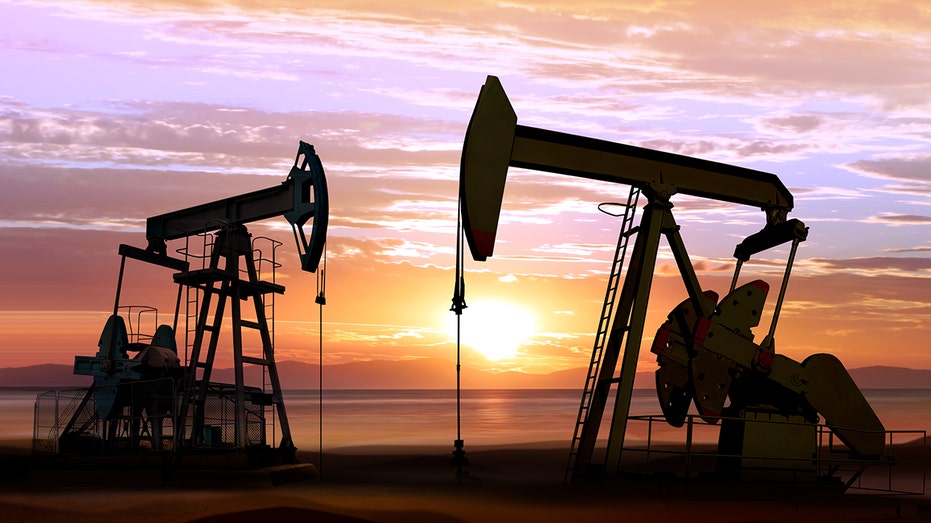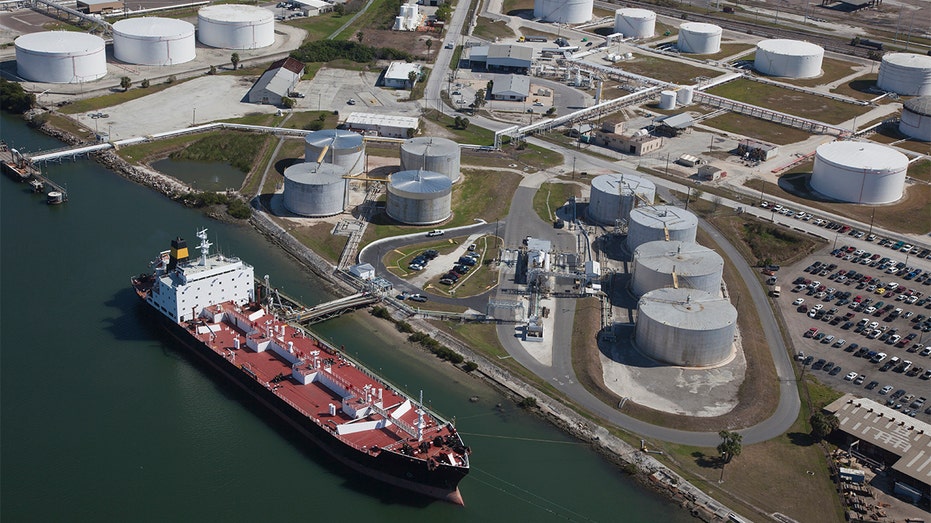Former Interior Secretary David Bernhardt shares his thoughts on Biden’s energy crisis on ‘Kudlow’.
American utilities are facing the highest natural-gas prices in years as they build stockpiles for winter. The reason: Exporters are sending more gas than ever to countries starved for the fuel.
Pipelines to Mexico and Canada and tankers traveling to Europe and Asia have moved record amounts of U.S. gas out of the country this year as parts of the world fall short of supplies. American frackers, meanwhile, are holding the line on new drilling as investors pressure them to maintain capital discipline and return money to shareholders.
The result is that natural-gas exports are pushing domestic prices higher—only the second time this has happened since companies began shipping shale gas from the Gulf Coast to other countries in 2016, other than a brief period during the February freeze in Texas, analysts say.
U.S. Henry Hub gas prices closed Friday at $5.516 per million British thermal units. That is up from just over $3 per million British thermal units a year ago.

Oil filling the ECO car in oil station (iStock)
The pinch shows a growing tension between exporters and buyers who have enjoyed cheap gas for more than a decade. Some manufacturing and chemical companies have built entire businesses around low U.S. gas prices.
US NATURAL GAS FUTURES ON TRACK FOR 12-YEAR HIGH AS GLOBAL PRICES SOAR
Utilities from the Pacific Northwest to New England have filed regulatory requests to raise rates for natural gas this winter, citing a supply squeeze as a result of higher global demand. The Energy Information Administration has forecast that the average U.S. household that relies on natural gas for heating will pay 30% more for the fuel this year.
Eversource Energy, a utility that serves 3.6 million electric and natural-gas customers in Connecticut, Massachusetts and New Hampshire, warned this month that average natural-gas customers in Connecticut can expect to see their bills increase by about 14% this month. In Massachusetts, customers may see bills increase by as much as 21%.
James Daly, Eversource’s vice president of energy supply, said the company typically stores enough gas to meet about a third of its winter needs and relies on the market for the remainder. He said the cost of natural gas has increased by about 20% compared with a year ago, when prices were at historic lows. That has also affected wholesale electricity prices, which are up about 50% in the New England market, Mr. Daly said.
“Demand for natural gas and power is increasing substantially over where it was a year ago,” he said. “We’re seeing a bit of upward pressure on natural gas prices here to respond to the very high demand and the prices in Europe.”

silhouette of working oil pumps on sunset background (iStock)
CMS Energy Corp., a utility serving 6.7 million people in Michigan, is largely insulated from winter price swings because it already has enough gas parked in storage fields. But the surge in exports has made the procurement process more difficult this year, as utilities across the country grapple with short supplies, said Greg Salisbury, the company’s vice president of gas supply and engineering. Already, his team is thinking about next year’s procurement strategy.
“Suddenly, we have a global market that used to be much more regionalized,” Mr. Salisbury said. “It’s a much more complex equation to solve than it was a few years back.”
THE NATURAL-GAS GLUT HAS EVAPORATED, DRIVING PRICES HIGHER
As utilities prepare for a surge in demand, the U.S. is exporting a larger share of its natural gas than it ever has and shale producers aren’t quickly ramping up in response to high prices.
In August, the nation’s gas production was only about 4% off its all-time peak in November 2019. With the exception of February, U.S. gas exports via pipelines and tankers, which carry liquefied natural gas, or LNG, were equivalent to about 19% to 21% of output each month from last November to August, data from the Energy Information Administration show.
Those exports hit a record 19.2 billion cubic feet a day in March, up about 71% from the onset of the pandemic and up about 17% from the pre-pandemic peak. The volumes have stayed close to that high mark since then as LNG export facilities have kept shipments near maximum capacity.

Crude oil tanker discharging crude oil to storage tanks
Shipments are expected to keep rising. Cheniere Energy Inc., the largest U.S. LNG exporter, set a record for shipments in the third quarter, with 141 LNG cargoes between its two Gulf Coast facilities. Next year, Cheniere is set to open a sixth liquefaction facility, known as an LNG train, at Sabine Pass, La., while privately held Venture Global LNG Inc. is set to begin shipping gas out of a new facility in Louisiana.
The capacity of U.S. LNG facilities has cumulatively risen 54% from the end of 2019, amid plant expansions, according to S&P Global Platts Analytics. Pipeline volumes to Mexico have also hit records this year following pipeline expansions and higher power demand.
The shipments have helped keep supplies constrained. In the week ended Oct. 29, the amount of gas in underground storage was 8% below the same time last year and 2.7% below the five-year average, according to the EIA.
READ MORE ON FOX BUSINESS BY CLICKING HERE
Meanwhile, some of the biggest natural-gas producers have vowed to keep investments in production growth low. Shale companies EQT Corp., Chesapeake Energy Corp., Antero Resources Corp. and others recently told investors high prices haven’t tempted them to spend a lot more money to boost production.
“We’re staying away from growing,” Antero Chief Executive Paul Rady said on a recent earnings call.
The reduced flexibility of supply could make prices volatile if heating demand comes in strong this winter, analysts said.
“It’s a big concern if you have a really cold winter,” said Kendrick Rhea, an analyst at East Daley Capital Advisors Inc. “That’s where you get these extreme spikes in prices.”
